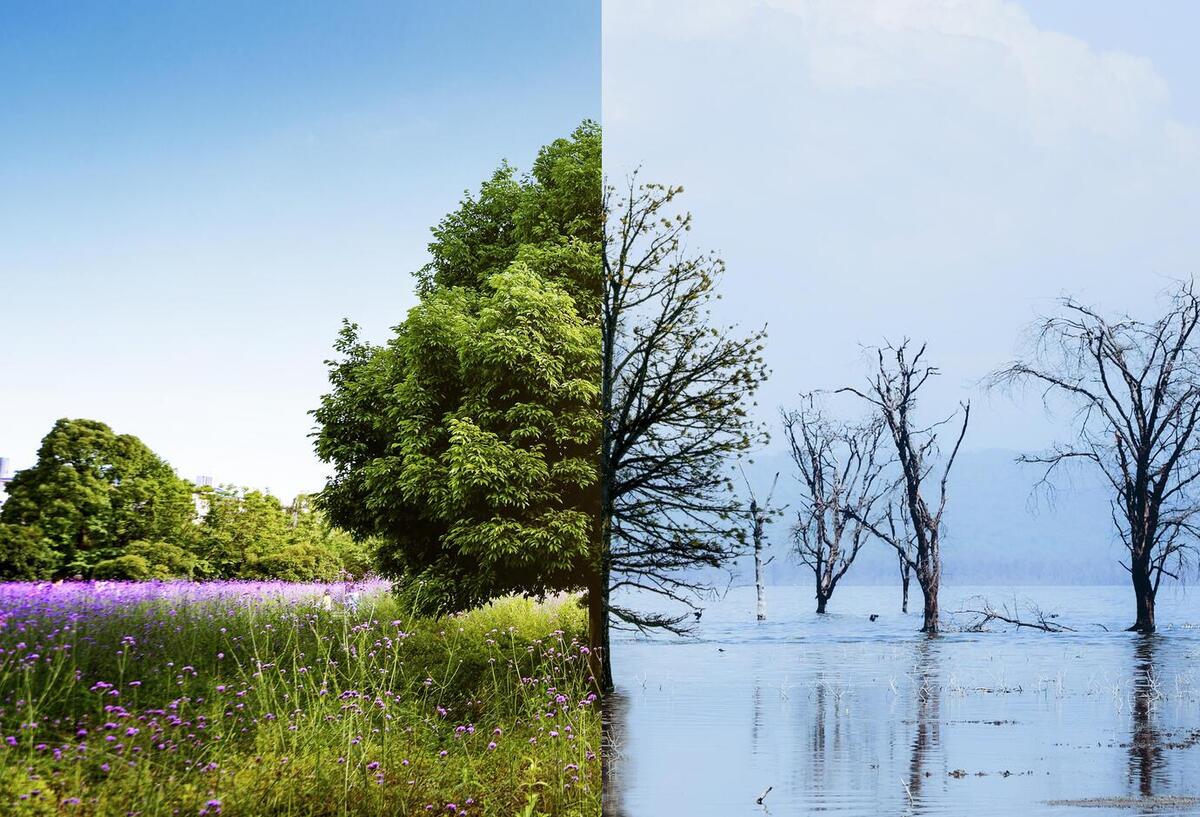Everyone reacts to fear in a unique way, but if there's one thing we've all probably discovered over the last couple of years, it's that the level of threat matters.
A little fear can wake anyone up from a lul. If you suddenly realize that that creep has been following you for a while, at night in an abandoned alley you will, for instance, likely immediately speed up and seek a way to get yourself out of that situation. If your kitchen is on fire, you call the fire department and evacuate, or take steps to put the fire out if it's small enough. If a recession hits and plenty of people around you are being laid off, you might suddenly start working a whole lot harder at a job you'd been taking for granted until that point.

Ramp a threat level up a few hundred notches, and you might not feel like there's anything you can do. The result? That varies, too, but some possible responses to extreme threats include feelings of doom and depression (an extreme version of the "freeze" approach to fear stimuli, perhaps), and denial — simply pretending that the bad thing isn't happening (that's "flight"),
The world has taken a decidedly foreboding, apocalyptic, turn in recent years, and though that fact remains fairly easy to ignore in many parts of the world, still, there's no denying that it weighs on many of us.
The famous Doomsday Clock was set to 100 seconds to midnight in January 2022, and the Bulletin of Atomic Scientists apparently wholeheartedly believe that things were already so bad that even the conflict in Ukraine — you know, the thing that's had people talking about World War 3 as if it's an actual physical possibility sometime soon recently — didn't make them move it closer to midnight.
World Health Day 2022, an awareness event the World Health Organization has been marking since 1947 to highlight a particularly pressing public health problem of global concern, arrives in these circumstances. What do you highlight when everything's scary and bad? Well, "our plant, our health", apparently. What's that mean, and why was it chosen?
The Biggest Threats Facing Our World Today
World Health Day typically focuses on a single issue. Past themes include, for instance, road safety, antibiotic resistance, high blood pressure, diabetes, depression, and there was a World Health Day in the dubious honor of COVID, too. (Can you guess what year each was marked in?)
So, what are some of the biggest threats facing human health and wellbeing today? Just in case you've been living under a rock, here's a look:
- The COVID pandemic still isn't over, even if we seem to be going about our lives as if it were. Scarier, more deadlier, pandemics could follow in the future — and if this current one is anything to go by, we're all woefully underprepared.
- Climate change isn't going anywhere. Despite the fact that global leaders, as well as world citizens, finally seem to be waking up to this threat, the UN fears that the world is heading for a scenario in which a world where average temperatures rise by 3 degrees Celsius by 2100 is no longer a horror story, but perhaps even a best-case scenario. Many of the other challenges we'll be dealing with result from climate change. They include extreme weather events like floods and wildfires, that will kill many people.
- Pollution already means 90 percent of the world's people breathe unhealthy air, the WHO warns.
- Hunger is another growing problem. Already in 2019, 17 percent of the world's people were "moderately food insecure", while nine percent faced severe food insecurity. That was mostly caused by climate change and war, and it's even worse now, in 2022.
- A third of the global population doesn't have reliable access to clean drinking water, and that too is set to rise with the effects of climate change.
- Global conflict is another threat that's already on everyone's radar, but as climate change threatens ecosystems and agricultural lands, it's only likely to get worse.
- Did we miss anything? Probably. In addition to newly amplified threats or new threats, old problems ranging from diabetes to high blood pressure, from cancer to depression, and from vector-borne diseases to antibiotic resistance, remain with us.
Is our planet a sinking ship? Are we better off pretending that all's well, because we can't do anything to avert disaster anyway? Hardly. While our world is changing, the COVID pandemic also showed us what we can achieve when we all work together on a global level. Don't let that fear response get in your way, and know that there's still time to fix things — so that future generations will live in a safer, more stable, world. That's what World Health Day 2022 is essentially about.
While you and I can't do much to change the fate of humanity and the planet, we can all take the little steps that can make a big difference when we all participate. That might look like wearing a mask and staying two meters away from others, or it might look like ditching plastic bags and investing in cleaner energy. Whatever challenges still await, humans are innovative problem-solvers. Now's not the time to give up.

